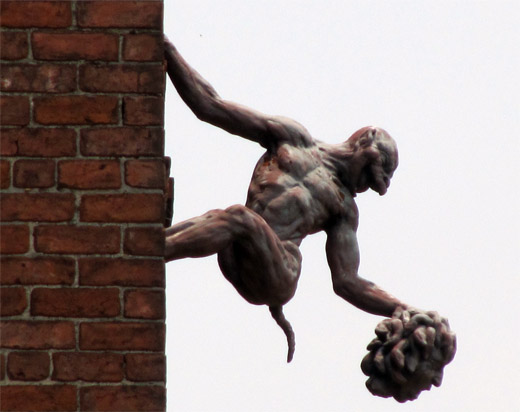Sometimes a tiger mother makes more sound than sense, but obscurity is useful: It forces you to ask, “Will I understand this when I’m older, or is this nonsense?”
ST. JOHN’S EVE
(MIDSUMMER SONG)
When leaves that leach from every tree
Like bitten insects blight and curl,
The swollen moon may let you see
But once a goblin girl.
Be quick: The brindled moths detest
To stir the brack and shallow air
Of seeping June, where scinnhiws nest,
Yet you will find her there.
Their sodden boughs admit no strand
Of summer-wasted moon to stream
But one, but she must make her stand
Within her sallow beam.
She snuffs the muck, but scarcely finds
The spoor of misremembered things,
As “Love, O careless Love, my mind’s
Not right,” she sifts, she sings,
She scents, she turns—her eyes aflash
Like stars above a harrowed field
That starve their spark in cosmic ash,
Eternity revealed
In silver curls, inflamed with sweat,
In reckless lilies, late awoke;
Their withring stems she stoops to let
Enwreathe her, lest she choke,
While through the gloom, she stalks the word
That calls the rake of summer rain.
As some slight boy who nursed a bird
But set her wing in vain,
She raises high her plunder fair,
She offers up a secret thing,
She grounds her glyph in graceless air,
While wild around you ring
The beadling eyes that light abide
To see the perfect rind unfold,
To gnaw the hidden fast inside
That goblins long to hold—
Her eyes will rise; you cast yours down.
Before her sneer, betray no guile.
And to her grin, extend a frown;
In this, you whet her wile.
And if she riddles, answer straight;
And to her white, you echo black;
But when she fangs, embrace your fate,
And her, and bite her back.
Then run, as you must always run,
And learn what you will never learn,
And goblin glances roundly shun;
But let the memory burn.
Beyond the bramble, timbers blaze,
So join us as we rouse with song
The lazing dawn, and know our days
Will never be this long.
Let seven into fathoms fall,
Let three around the wake-fire whirl,
And let your summer scant recall
But once a goblin girl.

(For all the entries in this series, hit the “looking up” tab, or read the gargoyle FAQ.)
















